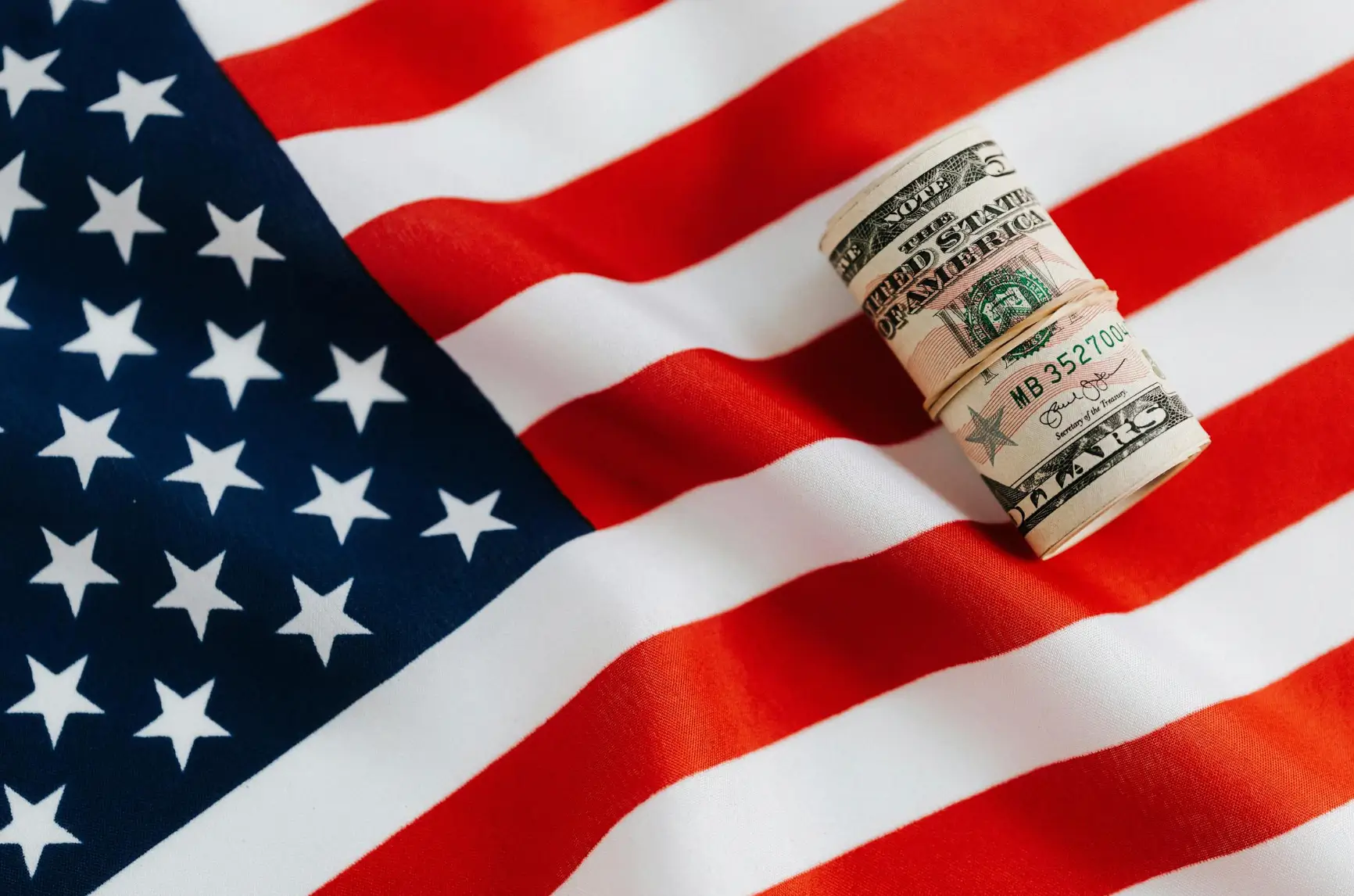U.S Economy: Surprise GDP Drop Sparks Recession Fears as Inflation Stays Hot
30.04.2025 16:49 1 min. read Alexander Stefanov
The U.S. economy stumbled at the start of 2025, logging a 0.3% annualized decline in GDP—marking a sharp contrast to late 2024’s growth.
This early estimate from the Commerce Department suggests momentum is fading, despite resilient consumer demand.
Beneath the surface, private sector activity remained solid, with real final sales rising 3%. But price pressures were also rising: consumer-related inflation gauges hovered around 3.5%, underscoring the persistent cost-of-living squeeze.
The contraction came largely from two fronts: a pullback in government outlays and a spike in imports, which drag on the GDP calculation. Although business investment and exports provided some lift, they weren’t enough to offset the drag.
Worries over tariffs appear to have driven an early surge in imports, distorting the quarter’s figures. At the same time, public sector consumption fell sharply, adding to the weakness. Analysts caution that these trends could worsen in the second quarter, edging the economy closer to a recession.
Forecasts had pointed to slight growth, with expectations centered around 0.3% to 0.5%. Now, the narrative is shifting. Trading Economics revised its Q2 outlook to -1.2%, and Polymarket traders raised recession odds to 71%.
Markets didn’t take the news lightly. Bitcoin slipped, gold inched higher, and U.S. equities dipped alongside rising bond yields. Meanwhile, leading GDP models painted conflicting pictures—ranging from a deep contraction to moderate growth—further clouding the economic outlook.
-
1
Robert Kiyosaki Predicts 2025 “Super-Crash,” Urges Hoarding Gold, Silver, and Bitcoin
23.06.2025 13:31 2 min. read -
2
Billionaire Slams Meme Stock Hype and Sounds Alarm on U.S. Fiscal Health
15.06.2025 18:00 2 min. read -
3
Billionaire Investor Sees Dollar Crash If Key Support Breaks
18.06.2025 15:00 1 min. read -
4
Nassim Taleb Says Global Trust Is Shifting from the Dollar to Gold
22.06.2025 17:00 1 min. read -
5
Geopolitical Shockwaves Hit Ethereum Hard While Bitcoin Stays Resilient
22.06.2025 16:21 1 min. read
Robert Kiyosaki Predicts When The Price of Silver Will Explode
Robert Kiyosaki, author of Rich Dad Poor Dad, has issued a bold prediction on silver, calling it the “best asymmetric buy” currently available.
U.S. PCE Inflation Rises for First Time Since February, Fed Rate Cut Likely Delayed
Fresh data on Personal Consumption Expenditures (PCE) — the Federal Reserve’s preferred inflation gauge — shows inflation ticked higher in May, potentially delaying the long-awaited Fed rate cut into September or later.
Trump Targets Powell as Fed Holds Rates: Who Could Replace Him?
Federal Reserve Chair Jerome Powell is once again under fire, this time facing renewed criticism from Donald Trump over the Fed’s decision to hold interest rates steady in June.
U.S. National Debt Surge Could Trigger a Major Crisis, Says Ray Dalio
Billionaire investor Ray Dalio has sounded the alarm over America’s soaring national debt, warning of a looming economic crisis if no action is taken.
-
1
Robert Kiyosaki Predicts 2025 “Super-Crash,” Urges Hoarding Gold, Silver, and Bitcoin
23.06.2025 13:31 2 min. read -
2
Billionaire Slams Meme Stock Hype and Sounds Alarm on U.S. Fiscal Health
15.06.2025 18:00 2 min. read -
3
Billionaire Investor Sees Dollar Crash If Key Support Breaks
18.06.2025 15:00 1 min. read -
4
Nassim Taleb Says Global Trust Is Shifting from the Dollar to Gold
22.06.2025 17:00 1 min. read -
5
Geopolitical Shockwaves Hit Ethereum Hard While Bitcoin Stays Resilient
22.06.2025 16:21 1 min. read


